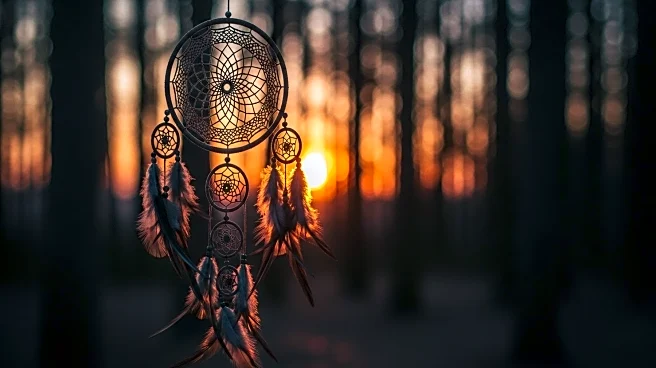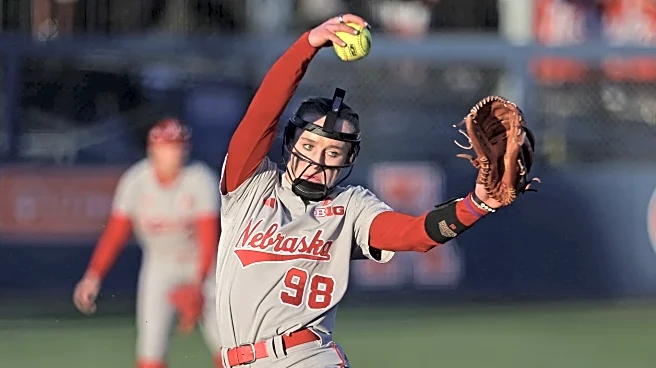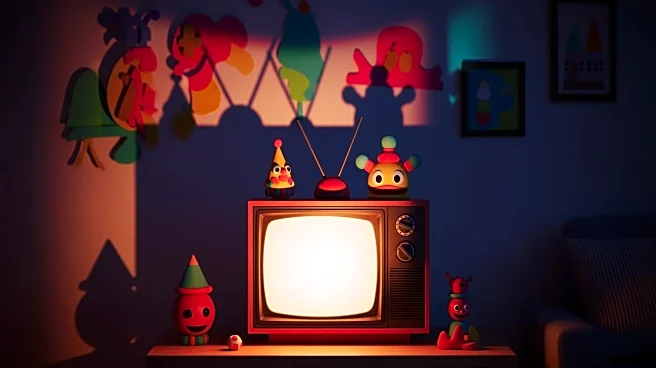What is the story about?
What's Happening?
As the 'Twilight' series marks its 20th anniversary, readers are revisiting the books and movies with a critical eye, particularly focusing on the portrayal of Indigenous peoples and other problematic themes. The series, written by Stephenie Meyer, has been criticized for its depiction of the Quileute Tribe, which is portrayed through the werewolf characters. Critics argue that the series reduces Indigenous people to 'animalistic' stereotypes and fails to accurately represent their culture. Additionally, the series has been scrutinized for its portrayal of relationships, with some readers finding the dynamics between characters like Edward and Bella to be controlling and problematic. Despite these criticisms, the series remains a cultural phenomenon, sparking discussions about its impact on young adult literature and its fans.
Why It's Important?
The critique of 'Twilight' highlights ongoing issues of representation in media, particularly concerning Indigenous communities. The portrayal of the Quileute Tribe in the series has been called out for perpetuating harmful stereotypes, which can influence public perception and understanding of Indigenous cultures. This discussion is part of a broader movement to hold media accountable for accurate and respectful representation of marginalized groups. The series' impact on young adult literature and its fans also underscores the importance of critically engaging with popular media, recognizing both its influence and its shortcomings. As the series continues to be celebrated and critiqued, it serves as a reminder of the power of storytelling and the responsibility that comes with it.
What's Next?
With the upcoming adaptation of 'Midnight Sun' into an animated series by Netflix, there is an opportunity for the 'Twilight' franchise to address past criticisms and improve its representation of Indigenous cultures. Fans and critics alike are hopeful that future adaptations will take a more respectful and accurate approach to depicting the Quileute Tribe and other elements of the story. This could involve consulting with Indigenous communities and incorporating their perspectives into the storytelling process. As the series continues to evolve, it will be important for creators to engage with these critiques and strive for more inclusive and thoughtful representation.
Beyond the Headlines
The ongoing conversation about 'Twilight' and its portrayal of Indigenous peoples reflects a larger cultural shift towards accountability and inclusivity in media. This discussion is part of a growing awareness of the impact that media representations can have on societal attitudes and the importance of diverse voices in storytelling. The series' legacy, both positive and negative, highlights the need for continued dialogue about representation and the ways in which media can both reflect and shape cultural norms. As fans and critics engage with these issues, there is potential for meaningful change in how stories are told and who gets to tell them.
















